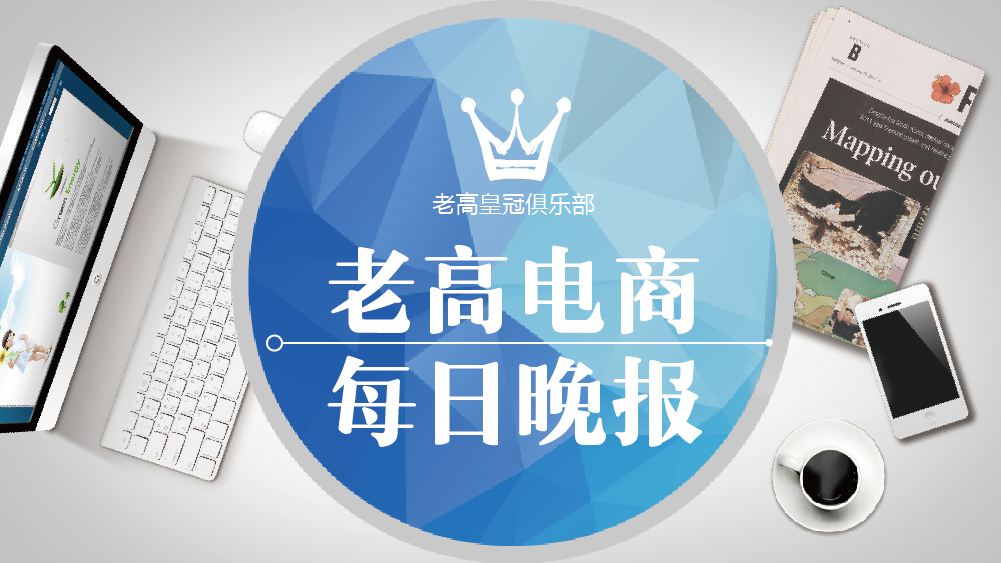Tax cuts have undoubtedly become the main tone of China's fiscal policy this year. On March 25, at the "2018 Annual Meeting of China Development Forum", the new Minister of Finance Liu Kun once again emphasized his determination to reduce taxes this year, revealing that he will continue to adjust the VAT level to further stimulate the vitality of market entities and promote the development of the real economy. This is the official latest statement on "tax and fee reduction".
Tax cuts not only involve offline physical industries, but will also bring substantial benefits to e-commerce. In a sense, this can be seen as a conclusion on the controversy over "e-commerce tax payment" last year. In fact, judging from the performance of the tax decision-makers in recent years, there has always been an idea of reducing the tax burden for "small and micro e-commerce", which will be implemented on a large scale this year.
On March 31 last year, the All-China Federation of Industry and Commerce and the State Administration of Taxation held a symposium on "Deepening Tax Reform to Help the Development of Private Enterprises" to release information on the direction of tax leverage adjustment, which is actually quite beneficial to private enterprises. Wang Jun, director of the State Administration of Taxation, said in his speech: We will further increase tax policy support. For example, if the scope of small and micro enterprises enjoys half the preferential treatment for corporate income tax, the annual taxable income limit will be increased from 300,000 yuan to 500,000 yuan, and the additional deduction ratio for R&D expenses of technology-based small and medium-sized enterprises will be increased from 50% to 75%, etc., we will do everything possible to promote the development of private and all enterprises.
During the conversation between the State Administration of Taxation, there was another small episode that was quite interesting. JD.com founder Liu Qiangdong, who attended the conference, had a dispute with Alibaba founder Jack Ma about whether small and micro e-commerce should enjoy tax incentives. Liu Qiangdong called for an increase in the amount of tax payments for "small and micro e-commerce"; Jack Ma believed that large enterprises should become the main taxpayer, and for small enterprises, they should consider raising fish more. Small businesses seek survival opportunities on the Internet and let small businesses survive well, which is what tax leverage adjustment really should be considered. Wang Jun made an impromptu statement on this: "Technically, it is possible to impose taxes on small businesses. But for small e-commerce, we must be very cautious in handling taxation for emerging business formats, especially new business formats that can be employed. We should support more development."
In fact, reducing tax exemptions for small and micro enterprises can be regarded as the consistent position of the State Administration of Taxation. In an interview with the media during this year's Two Sessions, Wang Jun pointed out that this year's tax cut measures have been the most in government work reports in previous years, with heavy weight and great strength, and will cover hundreds of millions of natural persons and tens of millions of enterprises. He also pointed out that this year's tax cut measures focus on reducing the tax burden of small and micro enterprises and working classes, encouraging entrepreneurship, promoting consumption and improving people's livelihood.
The consistent policy of reducing taxes and fees to release water to raise fish is accelerating the results. In 2017, Alibaba Group and Ant Financial Group paid a total of 36.6 billion yuan in taxes, with an average of 100 million yuan in taxes per day, and drove the upstream and downstream taxes of more than 290 billion yuan. The new retail ecosystem that combines online and offline has given birth to many tax stars. Many traditional companies are based on Tmall to carry out digital transformation, and the tax scale continues to rise. For example, the domestic manufacturing giant Midea has annual sales of over 10 billion on Tmall for many years. Through cooperation with Tmall, Midea has opened up overseas markets, launched a "Chinese brand", embraced the outstanding performance brought by "new retail", and supported Midea's tax payment scale of more than 14 billion yuan in 2017. Not only giant companies like Midea, but many relatively small companies, such as the time-honored brand Wufangzhai, won the "second spring" on Tmall, and its profit and tax scale reached 336 million yuan in 2016; the snack food brand "Three Squirrels", which became popular through Tmall channels, has doubled its performance for three consecutive years. By September 2017, it had a cumulative sales of over 10 billion yuan on Tmall, and as early as 2016, it had paid more than 100 million yuan in taxes. Data shows that the huge effect of the "new retail" ecosystem has driven Tmall merchants to become the backbone of tax payments in the Chinese business community.
Data shows that in the past five years, the country has continuously implemented tax cuts, and the growth rate of tax revenue has also slowed down for a while, but in 2017, China's tax revenue increased by 8.7% year-on-year. On the one hand, there is tax cuts and on the other hand, there is a rebound in the amplitude of tax revenue. How to explain this phenomenon? This is due to the improvement of corporate benefits brought by tax cuts and the subsequent revitalization of the real economy. Especially the country encourages innovative development, which is conducive to platforms like Alibaba to cultivate new tax bases and become the new main force in tax payments.
As a super taxpayer, Alibaba itself also uses the platform effect and drive to revitalize the real economy and creates new tax sources to create new tax sources. This model is also triggering the academic community to re-examine the issue of e-commerce taxation based on this. Zhang Bin, director of the Tax Research Office of the Institute of Finance and Economics Strategy of the Chinese Academy of Social Sciences, represents the mainstream academic community. He believes that there are misunderstandings in the current discussion on e-commerce taxation in society. Many people have not noticed that e-commerce platforms themselves have become an important force in the country's tax payment, especially the fact that the platform drives massive taxes. The view on taxing and taxing on small businesses on the platform is not only inconsistent with the country's consistent policies, but is not conducive to liberating water and raising fish, broadening the tax base and raising employment.
The country's attitude towards "small and micro e-commerce" is to "leave water to raise fish". To truly achieve the goal of "letting water to raise fish, broadening tax base, and driving employment", we need to do not only reduce taxes for small and micro e-commerce companies, but also have further encouragement measures.
Alibaba’s tax payment practice has proved that as a platform ecosystem with the color of “entrepreneurship incubator”, the development of e-commerce not only directly contributes taxation, but also indirectly drives taxation by promoting the growth of massive platform enterprises. In the future, as an internationally competitive "digital economy", as its cloud computing and other technologies empower more traditional industries, the tax-driven effect it can generate will only be stronger. Understand this, we will no longer be strife against tax reduction and exemption of "small and micro e-commerce".
Zhao Peng, deputy director of the Institute of Rule of Law Government of China University of Political Science and Law, and others even suggested proposing the introduction of the "Digital Economy Promotion Law" to provide solid institutional guarantees for the good development of China's digital economy.


![#Laogao E-commerce Newsletter# [March 1 E-commerce Evening News Brief]](/update/1634637709l862528272.jpg)



 EN
EN CN
CN
